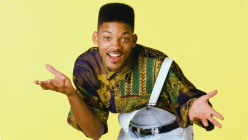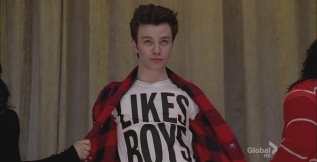It’s important to study sitcoms and their portrayals when discussing depictions of racial characters in television.
‘Sitcom’ is short for situational comedy, and these types of shows are characterized by 30-minute episode featuring recurring places and characters. In one episode of a sitcom, characters are introduced with a problem, deal with this problem and move on. It’s rare for an episode to not end well; these individuals/families always find a way to come together and restore peace. In this regard, sitcoms are problematic, because they simplify complex problems and emotions.
Sitcoms may seem short and expendable, but they have a profound impact on our understanding of the world and our idea of normalcy. Writers reproduce our everyday experiences in which the actors act like us, thus perpetuating a hegemonic state. We become invested in sitcoms because we watch beloved characters encounter familiar situations; we cry with them, we laugh with them, we grow with them.
Our connection to actors in sitcoms can be beneficial. Maanvi Singh describes the impact of our ‘relationship’ with television characters in his article for NPR. These parasocial friendships with fictional characters can actual change our worldviews for the better. Singh states “as we grow emotionally attached to characters who are part of a minority group, our prejudices tend to recede.” Members of society grow fond of characters that represent a minority and begin to dispel previous bigoted ideas.
 A common example of this phenomenon is Will Smith’s character in The Fresh Prince of Bel-Air. Born and raised in West Philadelphia, Will plays a troubled teenager who moves in with his upper-middle class family to find a better life. Viewers loved his kooky antics, supported him through his hardships, and stuck with him until the end.
A common example of this phenomenon is Will Smith’s character in The Fresh Prince of Bel-Air. Born and raised in West Philadelphia, Will plays a troubled teenager who moves in with his upper-middle class family to find a better life. Viewers loved his kooky antics, supported him through his hardships, and stuck with him until the end.
 Or what about Glee? Many viewers watched Kurt, an openly gay teen, get bullied and harassed throughout his time at McKinley High School. The sympathy and attachment some people have to Kurt result in a broader acceptance of the LGBTQ community.
Or what about Glee? Many viewers watched Kurt, an openly gay teen, get bullied and harassed throughout his time at McKinley High School. The sympathy and attachment some people have to Kurt result in a broader acceptance of the LGBTQ community.
These connections to Will and Kurt helped diminish racism, intolerance, and misunderstandings. Therefore, elements of sitcoms can have a positive impact on their viewers.
But racial representations, or the lack there of, in sitcoms is problematic. Because sitcoms guide our idea of normalcy, the historical lack of minority characters in sitcoms is harmful. Our image of a normal family is two straight, white parents who find themselves and their children in the upper-middle class. Marginalized populations appear occasionally, and they rarely encounter problems of racism, poverty, or violence. These issues, and these characters, don’t have a place in the perfect, happy-family lifestyle of sitcoms.
It’s crucial that we as viewers take sitcoms with a grain of salt. Even though sometimes we feel an attachment to characters in these types of shows, it’s crucial that we examine broader representations of various cultural and ethnic groups. This portrayal of everyday life seems normal, but it’s far from realistic.
I completely agree! I have always thought that sitcoms and TV in general can very much affect our feelings and opinions towards certain things. The audience often bonds and identifies with certain characters, making them feel like they know the character.
LikeLike
I think the idea of parasocial relationships is a very interesting concept, especially when they are profound enough to change our views of the world. These bonds between the character and the viewer transcend media boundaries and affect our reality. Thanks for reading!
LikeLike